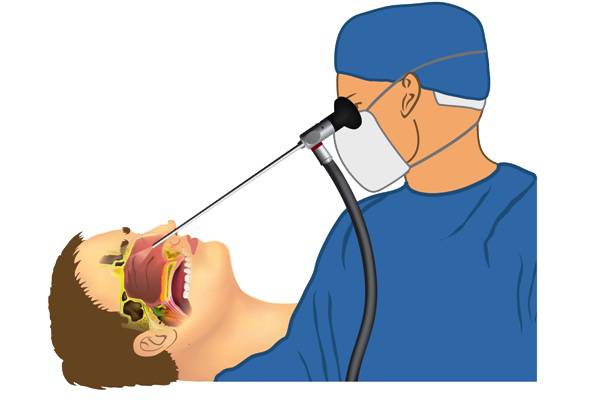Treating Sinus Infections
- Updated on: Jun 13, 2024
- 5 min Read
- Published on Jun 30, 2021


What is Sinusitis?
Sinusitis or sinus infection is an inflammation of air cavities within the passages of the nose, caused due to infection, allergies, and chemical or particulate irritation of the sinuses. Sinusitis cannot spread from one person to another in most of the cases. Mostly, sinusitis is caused by viral or bacterial infections but sometimes it may be also caused by fungal infections (e.g., zygomycosis).
Sinusitis can be acute or chronic. Acute sinusitis lasts up to four weeks while chronic sinusitis may last for more than twelve weeks and can continue for months or even years. Some of the common symptoms of sinusitis include:
- Sinus headache
- Facial tenderness
- Pressure or pain in the sinuses, including ears and teeth
- Fever
- Cloudy discolored nasal drainage
- Postnasal drainage,
- Feeling of nasal stuffiness
- Sore throat
- Cough
- Occasionally facial swelling
Sinus infections can be usually diagnosed on the basis of patient history and physical examination. However, different types of medications are helpful in the treatment of sinusitis based on the cause of the sinusitis.
Treatment of Sinus Infections and Sinusitis
Sinus infection (sinusitis) is an inflammation of sinuses and nasal passages. A sinus infection causes headache (sinus headache) or pressure in the eyes, nose, cheek area, or on one side of the head. People with sinus infections have a cough, sore throat, fever, bad breath, and nasal congestion along with thick nasal secretions.
Some of the main treatment goals of sinusitis include:
- Reducing swelling or inflammation in the sinuses and nasal passages
- Curing the infection
- Promoting sinus drainage
- Maintaining open sinuses
Reducing Swelling or Inflammation in the Sinuses and Nasal Passages
Blood cells and lining cells of the mucosa in the sinuses are normally able to fight off foreign invaders. However, if attacked by viruses, bacteria or allergens, sinus inflammation (sinusitis) can occur. With the help of an appropriate therapy, a short-term infection can be treated efficiently. Since foreign substances trigger various reactions, many treatments are available to treat inflammation symptoms.
Following decongestants can help in reducing airway obstruction and are therefore important in the initial treatment to improve the symptoms of sinusitis.
OTC Nasal Sprays
Oxymetazoline (Afrin), phenylephrine (Neo-Synephrine), and naphazoline (Naphcon) are the fastest decongestants and usually work within one to three minutes. However, these drugs should not be used for more than three days because they become less effective and everyday applications become necessary to attain the same results. This rebound phenomenon can be decreased by alternating between nostrils and using the medicine less frequently. Sometimes, people over-treat their nasal congestion with nasal sprays and therefore become dependent upon it in order to breathe more easily (a disorder called rhinitis medicamentosum). Overcoming this dependency requires a difficult withdrawal program that involves:
- Oral decongestants
- Saline
- Steroid nasal sprays
- Systemic steroids
- A combination there several
OTC Steroid Nasal Sprays
Budesonide (Rhinocort), fluticasone (Flonase), and triamcinolone (Nasacort) are steroids that also help in reducing inflammation of the nasal passages. Patients need multiple doses of this medicine before they start feeling the effects. However, there are some side effects of nasal steroids like nose bleeding or sore throat.
OTC Oral Decongestants
OTC oral decongestants (either in tablet or liquid form) contain some active ingredients like pseudoephedrine (Sudafed) or phenylephrine. These medications work very slowly than nasal sprays and complete their effect within 30-60 minutes. Prolonged use of OTC oral decongestants makes them less effective and may even result in rebound phenomenon.
Side Effects of Nasal and Oral Decongestants
Following are some of the side effects of both oral and nasal decongestants:
- Rapid heart rate
- High blood pressure
- Insomnia
- Nervousness
- Anxiety
- Tremor
- Dry mouth
- Blurry vision
- Headache (sinus headache)
Curing the infection
Taking decongestants (pseudoephedrine) and mucolytics (guaifenesin) orally may be helpful in supporting drainage of sinus infection. The treatment of chronic sinusitis often requires longer courses of medications, like Augmentin, and may require a sinus drainage procedure. Besides, antihistamines should be avoided unless the sinus infection is due to allergy, such as from pollens, dander, or other environmental causes. Oral steroids may be used to reduce acute inflammation and to help with chronic inflammation in cases with or without polyps and also in allergic fungal sinusitis.
Sometimes, people with allergic sinusitis may also develop bacterial infections. For these individuals, early treatment of allergic sinusitis is recommended in order to prevent the development of secondary bacterial sinusitis.
Rarely, fungal infections (called zygomycosis or mucormycosis) may develop in debilitated people. Death rates of 50 to 85 % have been reported for patients with these sinus infections. Treatment depends on early diagnosis followed by immediate surgical removal of damaged tissues, antifungal drugs, (mainly Amphotericin B) and stabilizing any other underlying health problem such as diabetes.
Promoting Sinus Drainage
The sinuses are always draining mucus down the back of the throat and into the stomach. Sometimes, other health issues make this drainage more obvious, and even painful or irritating. There are many medical as well as natural remedies which promote sinus drainage. Normally, healthy sinuses produce mucus to keep the throat, nose, and airways moist. However, due to the following conditions, there is excess sinus drainage which can be both irritating as well as a risk factor for pneumonia.
- Allergies
- Dry air
- Dehydration
- Sinus infections
- Cold
- Flu
- Changes in weather
Medical Treatments for Sinus Drainage
Some medications that can relieve sinus drainage-related discomfort include:
- Decongestants, which help in thinning the mucus so that it can drain more easily
- Antihistamines, when allergies cause drainage symptoms
The right treatment for sinus drainage symptoms usually depends on the cause, which is often the common cold. If the flu is causing uncomfortable drainage, antiviral drugs may help in healing. However, these medications only work if a person takes them within a few days of observing symptoms. In case of sinus drainage symptoms due to bacterial sinus infections, antibiotics may help clear the infection. Sinus drainage due to allergic reactions requires allergy testing and a proper diagnosis. Besides, prescription medications can also help.
Chronic sinusitis can also cause irritating sinus drainage. In such cases, antibiotics and corticosteroid medications are helpful, but a person may require surgery if the sinusitis has caused a blockage.
Natural Remedies for Sinus Drainage
If sinus drainage is irritating, but not severe, home remedies can be used to relieve the discomfort. Following are some of the natural treatments for sinus drainage:
Essential Oils
Aromatherapy has been found to be useful in providing temporary relief from congestion and pressure due to sinus drainage. For example, essential oils of peppermint and eucalyptus.
Steam Therapy
Sinus drainage is often caused by thick mucus. However, steam therapy can thin the mucus and thereby allow it to flow more easily, and also helps in relieving cough, pressure, and breathing problems.
Water and Preventing Dehydration
Dehydration can cause painful sinus drainage. Therefore, drinking plenty of fluids (water) and avoiding caffeine can help:
- Replace fluids
- Prevent further dehydration
- Thinning of the mucus, allowing it to drain more easily
- Cool, dry air can also dry out the airways.
Nasal irrigation
Nasal or sinus irrigation is often helpful in preventing the nasal drainage. Nasal irrigators are devices that help in cleaning the nose and sinuses. Irrigation also moistens the sinuses, thereby counteracting the effects of dry air. One of the commonly used sinus irrigators are neti pots, which help speed recovery from a sinus infection. Nasal irrigation is also called sinus flush or sinus wash.
Humidifiers
Dryness in sinuses during cold weather or dry climates can often lead to pain and congestion. Humidifiers often keep the air moist and reduce the effects of cold weather and dry air. Using a humidifier in the bedroom overnight can help in avoiding the sinus drainage.
Elevating the Head
Sleeping with the head elevated can help the mucus drain and prevent congestion due to sinus drainage
Herbal Remedies
Some herbal formulas have been found to shorten the duration of the common cold, which can cause uncomfortable sinus drainage.












